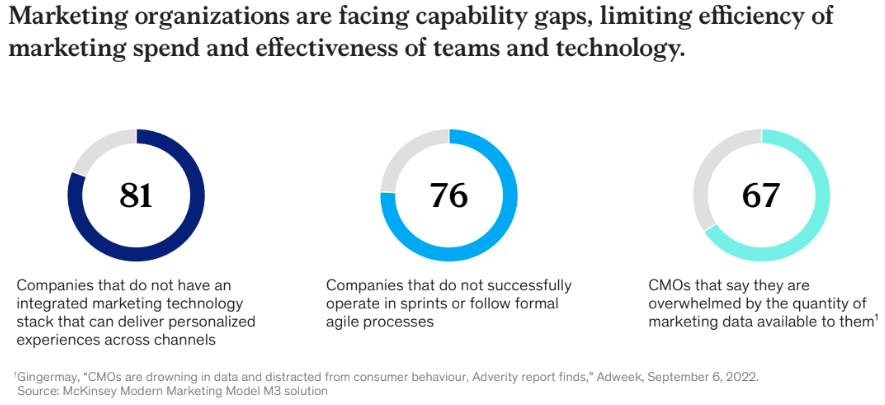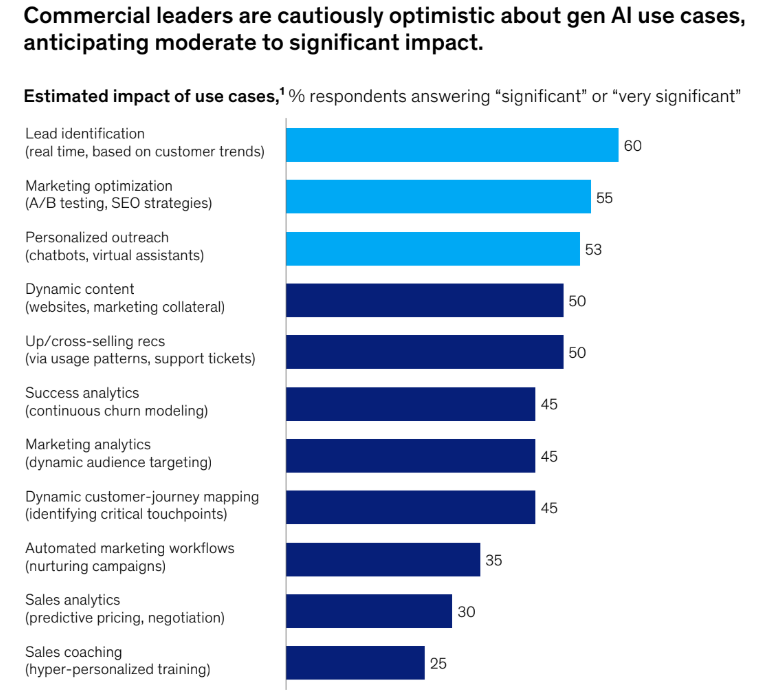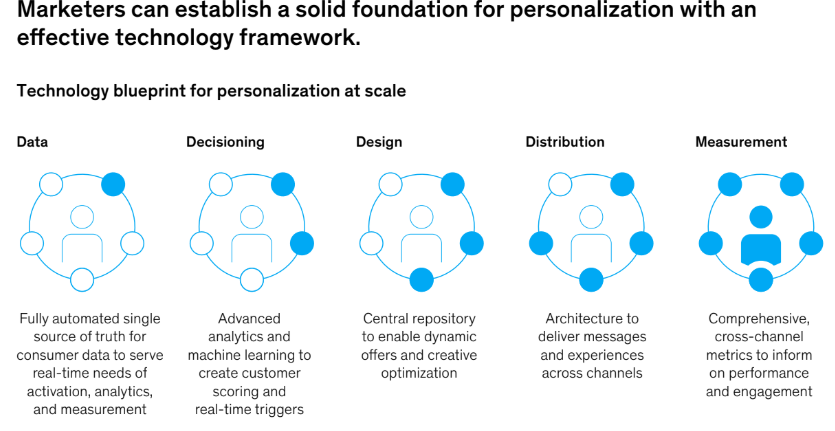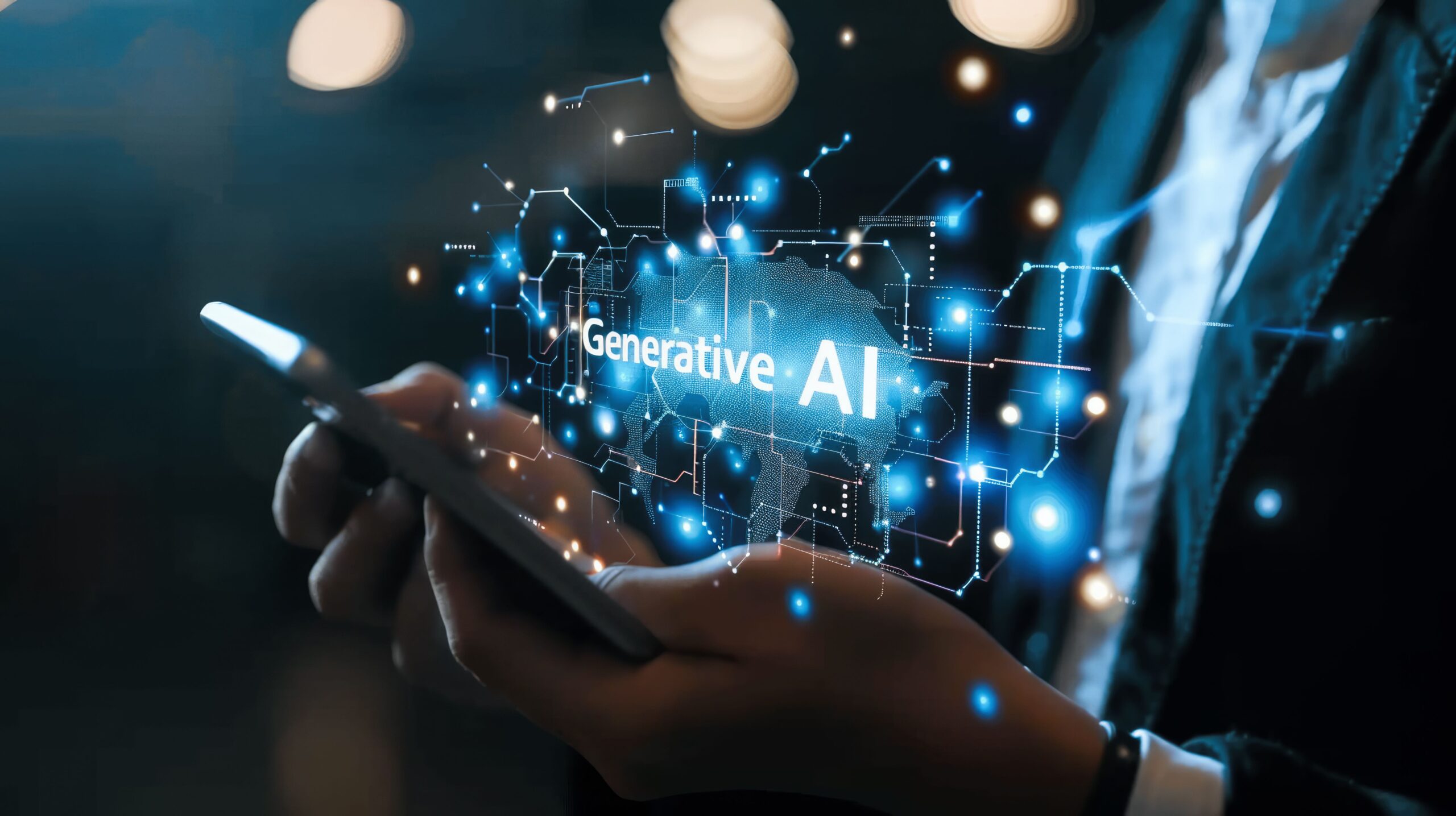Alright everyone, let’s talk about something that’s totally reshaping our world, especially in marketing and sales: Generative AI (Gen AI).
The Gen AI Revolution in Marketing: Our Utopian Vision
Imagine a future where every customer interaction feels personal and meaningful. A future where marketing isn’t about broad strokes or even just segmenting audiences, but about connecting with individuals on a hyper-personalized level, understanding their unique needs, behaviors, and preferences in real-time, and proactively offering them exactly what they need, when and where they need it. Think about sales teams spending less time on tedious tasks and more time building genuine relationships, powered by AI assistants that provide instant insights and tailored support. This isn’t just efficiency; it’s about unlocking unprecedented levels of growth, customer satisfaction, and productivity. That’s the utopian future of marketing and sales we see powered by Gen AI.
A Glimpse into the Present
It might sound like science fiction, but we’re already seeing incredible momentum. *According to research, 90 percent of commercial leaders expect to utilize Gen AI solutions “often” over the next two years. This isn’t just talk; companies are piloting and deploying Gen AI use cases, seeing real potential to elevate their operations. It’s becoming increasingly easy and less costly to implement AI technology, offering accelerating complexity and speed.
*AI-powered marketing and sales reach new heights generative AI, article by McKinsey, 2023

So, What are the Challenges Persisting?
Despite this exciting potential and growing adoption, let’s be honest: getting there isn’t a smooth ride for everyone. Many marketing organizations are currently struggling. We face constantly changing customer expectations and frequent marketplace disruptions that make it hard to act quickly. Many teams lack critical skills in areas like customer insight, marketing technology, and data analytics. On top of that, organizations are often mired by issues like weak governance, duplicate efforts, and confusing processes. Investments in new tools often go underutilized because people aren’t trained to use them effectively. Cross-functional teams struggle because they lack shared language, work with disparate systems and data, and find it hard to collaborate in truly impactful ways. It can feel like we’re trying to solve tomorrow’s problems with yesterday’s tools.
What are the Reasons behind these Struggles?
So, why are these problems so persistent? A big part of it is legacy organizational structures that are rigid and siloed, making it hard for teams to be agile and collaborative. We often lack a single source of truth for data, making it difficult to get clear, actionable insights that everyone trusts. Traditional ways of working, like rigid planning cycles and slow decision-making processes, clash with the speed required today. There’s also resistance to change and significant concerns around internal and external risks such as data privacy and security when implementing new technologies like Gen AI. Plus, building the “bridges of understanding” between technical teams (like data scientists) and creative or brand marketers is a common challenge.

Unlocking the Vision: Why Solving This Matters?
Here’s the thing: we truly believe that these challenges aren’t roadblocks but hurdles we must overcome to reach that utopian future. The potential benefits of AI and Gen AI are too significant to ignore. By addressing these fundamental issues around skills, processes, data, and collaboration, we can unlock the full power of these technologies. When done right, data-driven marketing at scale can deliver impressive results, including significant increases in net sales and marketing efficiency. Investing in AI is already showing promising revenue and sales ROI uplifts. The ability to truly understand the customer, personalize experiences, and automate mundane tasks hinges on getting the foundations right.
How Can We Get There? Solutions and Suggestions
Okay, so what can we actually do about this?
- Embrace Agility: This is the key! Adopt an agile marketing approach, breaking work into discrete, iterative cycles (sprints). This requires shifting from rigid structures to collaborative, cross-functional project teams (sometimes called squads or pods). These teams should be empowered and accountable, with resources allocated based on the work needed. Even when working with external partners like agencies, finding ways for dedicated collaboration and shared data is crucial, although it can be challenging initially.
- Build the Right Skills and Talent: We need to nurture marketing expertise and soft skills. The concept of “T-shaped” marketers is really important here – people with deep expertise in one area but broad understanding across many disciplines. This helps bridge gaps between teams like data scientists and brand marketers. Invest in talent, including hiring data scientists and strategists, and importantly, train your existing teams, including sales, on AI and Gen AI basics. Companies need to equip employees with the skills to work alongside AI agents. Learning programs should be engaging and tied to real-world applications.
- Get Your Data House in Order: High-quality data is essential for maximizing the potential of AI. This means prioritizing data preparation and establishing robust data governance frameworks. Building a comprehensive, aggregated dataset, perhaps in an operational data lake, is needed to train Gen AI models effectively. Implementing a Customer Data Platform (CDP) can provide a single source of truth that everyone trusts.
- Strategic Technology Investment: Conduct an audit of your existing marketing technology and sales tech infrastructure. Don’t just add tools piecemeal; do a holistic assessment based on strategic use cases. A strong tech stack, built on principles like Data, Decisions, Design, Distribution, and Measurement, is foundational for personalization at scale. This includes elements like analytics engines, decision engines, Digital Asset Management (DAM) systems, and interoperability between platforms.
- Experiment and Scale Smartly: Start with simple, high-impact, low-risk Gen AI use cases. Launch experiments and pilots in targeted areas. But crucial for scale is setting up the infrastructure to measure tests and having clear criteria and processes for scaling successful initiatives. Continuously refine models and operationalize them within your systems, using agile processes.
- Establish Governance and Transparency: As you deploy Gen AI, establish clear guidelines for your teams. Be transparent with customers about the use of Gen AI-created content to build trust. Put guardrails in place to limit risks like bias and ensure outputs are verified.
- Rethink Partnerships: Evaluate your agency ecosystem. Consider bringing certain business-critical activities in-house for greater control and speed. When working with agencies in an agile model, ensure they have the right dedicated talent and are fully integrated into the team culture. Being transparent with data with partners is essential when aligning incentives.

Key Gen AI Use Cases in Action
So, what does this look like in practice?
- Dynamic Audience Targeting and Segmentation: Gen AI can analyze vast amounts of data to identify new audience segments with unique traits that might have been missed. It can even help predict demand.
- Personalized Outreach: Once segments are identified, Gen AI can draft automatically tailored content like social media posts, landing pages, and even personalized outreach emails at a scale. This goes beyond traditional account-based marketing to hyper-personalization for individuals.
- Marketing Optimization: Gen AI can optimize strategies through A/B testing of elements like page layouts and ad copy and refine SEO strategies using predictive analytics and data-driven recommendations.
- Automated Marketing Workflows: This includes automating lead-nurturing campaigns based on evolving customer patterns.
- Enhanced Customer Experience (CX): Gen AI can power chat-bots and virtual assistants for contextual support, immediate answers to questions, and even act as 24/7 assistants for sales teams, offering recommendations and reminders. It can help deliver personalized on-boarding content and enhance online shopping experiences through digital humans.
- Sales Support: Gen AI can provide continuous support throughout the sales process, offering real-time negotiation guidance and predictive insights based on historical data. It can also assist sales leadership with real-time next-step recommendations and churn modeling.
- Content Creation: Gen AI is a powerful tool for brainstorming ideas, writing text, suggesting formats, identifying existing assets, and versioning content rapidly across channels.
Bringing Gen AI to Life Across the Customer Journey
Implementing Gen AI isn’t just about plugging in a tool; it requires intentional effort across the customer journey. This involves ensuring you have the necessary data infrastructure, operationalizing models within your systems, and continuously refining them using agile processes. It also means adjusting your organizational structure and operating model to align with these new ways of working and ensuring appropriate risk oversight. Companies need to map out where Gen AI-enabled targeted offers and relevant content can drive the most value. For instance, Gen AI can transform lead identification at the top of the funnel, moving beyond simple prioritization to leverage complex patterns in customer and market data. Within the sales motion, it provides continuous support from proposal to closure with personalized content and predictive insights. And even after the deal is done, Gen AI can assist with on-boarding, retention, and churn modeling.
The Gen AI revolution in marketing and sales is here, bringing incredible opportunities to enhance customer experience (CX), boost productivity, and drive growth. But realizing this potential requires addressing fundamental challenges in our organizations, data, skills, and ways of working. By embracing agile methodologies, investing in talent and technology strategically, and focusing on data quality and governance, we can move closer to that utopian vision of hyper-personalized, efficient, and growth-driving marketing and sales.
What are your biggest challenges or most exciting opportunities with Gen AI in marketing and sales, according to you? Share your thoughts with us!
The future of marketing is hyper-personalized, data-driven, and powered by Gen AI—and it’s not just for tech giants anymore. At Zamun, we specialize in helping businesses harness AI to create smarter campaigns, seamless customer journeys, and real growth. From strategy to implementation, we’ll help you cut through the noise, activate real-time personalization, and automate the mundane—so your team can focus on what truly matters: innovation and impact.Let’s co-create your AI-powered marketing future—get in touch today and see how we can help your business stay ahead of the curve.To know more about how we can take your organization to a higher orbit, visit Our Services Page or drop in an email to connect.
FAQs
Gen AI boosts efficiency by automating time-consuming tasks and personalizing customer engagement at scale—leading to better conversions, lower costs, and smarter resource use.
Not at all! With evolving tools and lower entry barriers, Gen AI is now accessible for businesses of all sizes. The key is starting with the right use cases.
Gen AI can handle content creation, lead scoring, A/B testing, email personalization, ad optimization, customer support, and even generate predictive sales insights.
No—it enhances what marketers do best. Think of Gen AI as a powerful assistant that helps marketers focus more on strategy, creativity, and relationship-building.
Good question. Implementing strong data governance, ethical AI frameworks, and transparency practices is critical for building trust with both customers and teams.
Glossary
CDP: A Customer Data Platform (CDP) is a software solution that centralizes and unifies customer data from various sources, creating a persistent and unified view of each customer.
DAM: Digital Asset Management (DAM) systems are software solutions used to organize, store, manage, and distribute digital content, including images, videos, documents, and other files
Sources
1. Unlocking the next frontier of personalized marketing, Article by McKinsey, 2025
2. AI-powered marketing and sales reach new heights generative AI, article by McKinsey, 2023
3. The forgotten hero of marketing excellence: Spend management, Article by McKinsey, 2020
4. Gartner Marketing Predictions, Report by Garter, 2025
5. Modern marketing: Six capabilities for multidisciplinary teams, Article by McKinsey, 2023
6. Unlocking the next frontier of personalized marketing, Article by McKinsey, 2025
